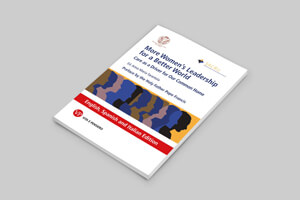More women’s leadership for a better world
On 10 March, the Maria Santissima Bambina Institute in Rome presented the book “More Women’s Leadership for a Better World: Care as a Driver for our Common Home,” published by Anna María Tarantola and the result of research carried out jointly by the Strategic Alliance of Catholic Research Universities (SACRU) and the Centesimus Annus Pro Pontifice Foundation (FCAPP).
This work addresses gender inequality in leadership positions throughout the entire world, from an international and multidisciplinary perspective, focusing on specific areas such as universities, the scientific environment, business, sustainable development, and also the Church.
I would like to comment on two parts of this publication: the preface by Pope Francis and the section in which Dr Anna Berga, the URL Registrar, participated.
First of all, as the Pope says in his preface, the book speaks of women, of their talents, skills, and abilities, but also of inequality, violence, and prejudice. The research that has been carried out highlights the difficulties that women face in accessing managerial positions in the workforce, although it also highlights the associated advantages that their greater presence and recognition entails for the entities of which they form part. In this regard, the Pope alludes to the harmony that women bring in fighting against the injustice and greed that harm people and the environment. It calls on us to work together to provide equal opportunities for men and women in all contexts in order to achieve a stable and lasting situation of equality in diversity.

I agree with the Pope when he states that if women could fully enjoy equal opportunity, we would contribute substantially to changing the world towards peace, inclusion, solidarity, and comprehensive sustainability.
This should be the personal and professional commitment of all the people who form part of the IQS community as well.
Dr Núria Vallmitjana
Director of IQS Tech Transfer
Note: The book has been published in Italian, English, and Spanish and can be downloaded at this link in PDF format or as an e-book: Vita E Pensiero


